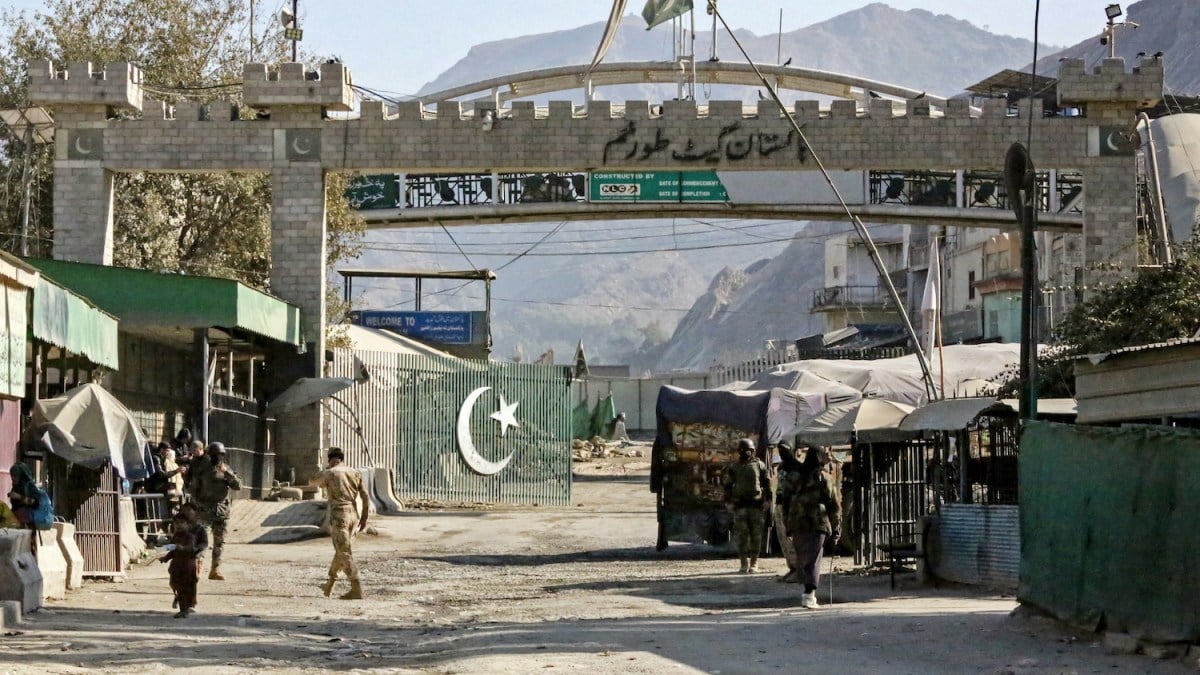
IMAGINE Afghanistan and Pakistan becoming enemies, each seeking to undermine the other. However, history shows that the two nations share deep-rooted connections based on religion, ethnicity and culture. This symbiotic relationship, proved resilient over time, is often misunderstood in modern inter-state relations. The presence of border-spanning tribes is a unique feature in the region, underscoring these deep historical ties.
A common question in Pakistan is: ‘Why do Afghans hate us?’ Rarely do we reflect on why this sentiment persists. The treatment of Afghan refugees in Pakistan remains largely unexamined. The harsh treatment by law enforcement, discrimination on the streets, and the difficulties faced at border crossings contribute to the perception of hostility.
Pakistan’s policymakers must broaden their perspective. They frequently emphasise Afghanistan’s strategic geographical significance for access to Central Asia while neglecting the people who are instrumental in this connectivity — the Afghans. Whether due to ignorance or arrogance, this oversight hinders regional cooperation. Let there be no doubt: Pakistan’s access to Central Asia is impossible without Afghanistan’s consent.
It is true that some Afghan officials, influenced by Indian support, have sought to undermine Pakistan in the past. However, in moments of critical importance, Afghans have not abandoned Pakistan. Historical facts illustrate this:
The treatment of Afghan refugees in Pakistan remains largely unexamined.
• While Afghanistan initially opposed Pakistan’s entry into the United Nations, this stance lasted only two weeks. The Afghan representative, lacking instructions from Kabul, chose a cautious approach. Once directives arrived, Afghanistan withdrew its objection and congratulated Pakistan on its membership.
• Despite its close ties with India, Afghanistan has maintained a neutral stance on the Kashmir issue since 1947. Had Afghanistan harboured deep resentment towards Pakistan, it could have easily supported India’s position.
• During the 1965 and 1971 wars, Afghanistan assured Pakistan of neutrality and border security. In 1965, King Zahir Shah reassured Gen Ayub Khan, urging him to redeploy troops from the Afghan border. In 1971, he reiterated this commitment to Pakistan’s ambassador, allowing Pakistan to focus on its eastern front.
While it is a fact that successive Afghan regimes have permitted India to use Afghan soil for anti-Pakistan activities, financial incentives often drive this. India’s financial assistance to TTP and BLA through Afghan proxies is well documented. However, Indian influence in Afghanistan remains limited; beyond a certain point, Afghan nationalistic sentiments, particularly among Pakhtuns, prevent complete alignment with Indian interests. If Pakistan maintains a rigid stance towards the Taliban regime, it risks pushing Afghan officials further into India’s sphere of influence.
The government’s approach of mass deportation of undocumented Afghan refugees has failed to pressure the Taliban. The Taliban’s ideological stance prioritises ‘sacrifice over diplomacy’, making such strategies ineffective. More importantly, these actions will leave a lasting imprint on Afghan collective memory, potentially sowing resentment for generations. Therefore, more than coercion, Pakistan needs a farsighted policy that accommodates Afghanistan’s entire population, irrespective of who governs the country. A pragmatic and humane strategy will serve Pakistan’s interests and bolster its regional standing.
First, the government’s decision to deport all Afghan Citizen Card holders by March 31 appears shortsighted, particularly given that the deadline falls within the holy month of Ramazan. Furthermore, under Article 6 of the ACC agreement signed in 2015, Pakistan and Afghanistan were to negotiate any amendments. Also, the total repatriation of Afghan refugees, including Proof of Residence card holders, should be formally discussed with the UNHCR and Afghan authorities. Pakistan must engage the international community to support returning Afghans in their resettlement.
Second, Afghan workers and business owners have long contributed to Pakistan’s economy, yet they operate in a legal grey area. By issuing work permits, Pakistan can regulate employment, generate tax revenue, and provide a lifeline to thousands of Afghan families. This move would also present the Taliban government with a golden opportunity — offering its citizens a legitimate means of livelihood and reducing economic pressures within Afghanistan.
Third, Pakistan’s trade relations with Afghanistan need restructuring to ensure mutual benefit. While transit trade should be streamlined, anti-smuggling measures must be strictly enforced, as Afghanistan’s other five neighbours have done. A fair and transparent trade policy will help both economies thrive.
Fourth, the livelihoods of millions on both sides of the border depend on cross-border trade. Even during periods of political tension, keeping trade routes open is crucial. A smooth flow of goods and services strengthens economic ties, fosters goodwill, and reduces the likelihood of hostility. Economic interdependence can serve as a stabilising factor in Pakistan-Afghanistan relations.
Fifth, hundreds and thousands of Afghans travel to Pakistan each year for medical treatment, yet restrictive visa policies often create unnecessary hardship. A more flexible visa regime, especially for medical emergencies, would reinforce Pakistan’s humanitarian credentials and further cement its role as a trusted neighbour. Such a policy shift would enhance goodwill and demonstrate Pakistan’s commitment to human dignity.
Afghanistan has suffered over 45 years of war, and every Afghan household bears the scars of conflict. Pakistan has a choice: it can adopt a policy of rigid enforcement and alienation, or it can embrace a cooperative approach that wins Afghan hearts and minds. The Taliban may be ruling today, but their hold on power remains uncertain if they continue to alienate minorities and other ethnic groups or discriminate against women. Pakistan must look beyond immediate political considerations and craft a policy prioritising stability, economic integration and humanitarian engagement.
Finally, a considerate Pakistan can set a precedent in the region — showing how a larger country earns greatness not through coercion but through compassion and cooperation with its smaller neighbours. A balanced approach will secure Pakistan’s interests, build long-term trust, and contribute to a more stable and prosperous region.
The writer is Pakistan’s former special representative for Afghanistan. He has also served as an ambassador to Iran and the UAE and is a senior research fellow at the Islamabad Policy Research Institute.
Published in Dawn, March 29th, 2025
Source: https://www.dawn.com/news/1901048/coercive-approach-wont-work


